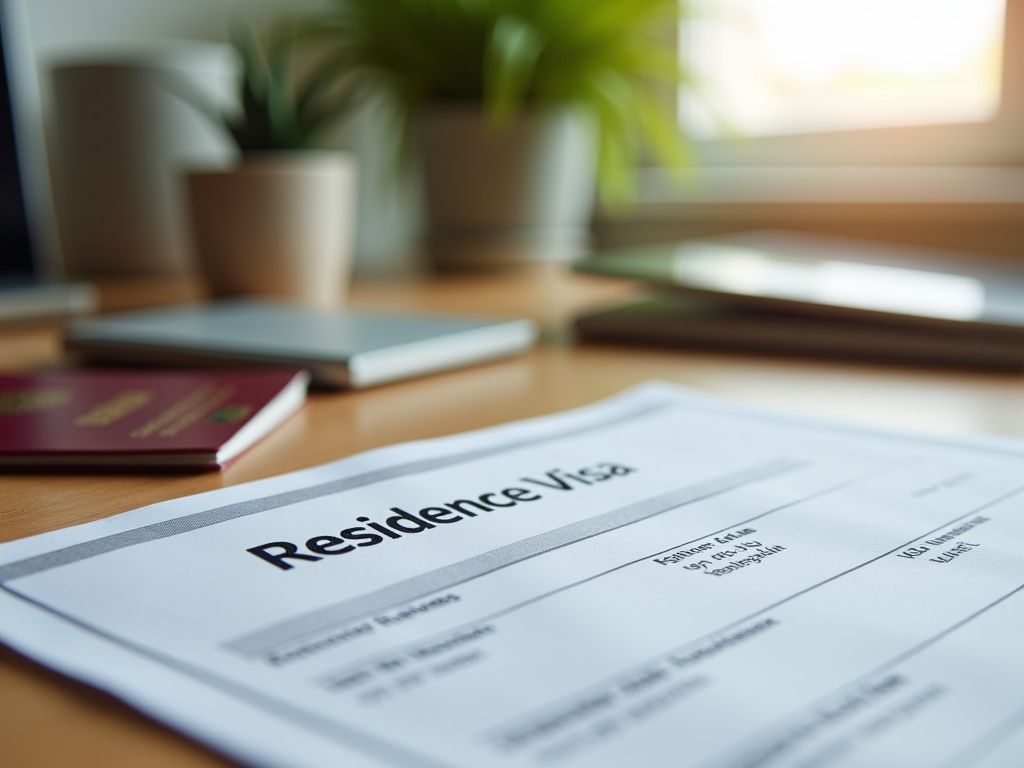Obtaining a residence visa in Dubai is a process that involves several specific steps and requirements. This guide aims to provide a detailed outline of the entire process, including the types of visas available, required documentation, and key procedures you’ll need to follow. In Dubai, a residence visa allows expatriates to live, work, and study in one of the world’s most dynamic cities. The process can be straightforward if you follow the outlined guidelines carefully. Below is an in-depth look at how you can successfully acquire a residence visa in Dubai.
Types of Residence Visas in Dubai

There are several types of residence visas available in Dubai, each tailored to different needs and circumstances. The most common categories include:
- Employment Visa: Issued to expatriates who have secured a job in Dubai.
- Investor Visa: Available for individuals investing a certain amount in Dubai’s economy.
- Family Visa: Allows foreign nationals to sponsor family members to reside in Dubai.
- Freelancer Visa: Aimed at self-employed individuals who work on a freelance basis.
- Retirement Visa: Designed for retirees looking to reside permanently in Dubai.
Each type of visa has varying eligibility criteria and documentation requirements. Understanding which visa suits your situation is crucial for a smooth application process.
Key Requirements for a Residence Visa

To successfully apply for a residence visa in Dubai, applicants must meet specific criteria and provide various documents. Here is a comprehensive list of the standard requirements:
- Valid Passport: Ensure your passport has a validity of at least six months.
- Employment Contract: A copy of your contract or an official job offer, if applying for an employment visa.
- Medical Fitness Certificate: Required for most visa applications, showing that you are free from serious health conditions.
- Emirates ID Application: Start the application for your Emirates ID, which is mandatory for all residents.
- Photos: Recent passport-sized photographs which meet the specified standards.
Each applicant’s specific circumstances can lead to additional required documents. Checking the latest regulations and guidelines from official sources is advisable to prevent any misunderstandings.
The application process for a residence visa involves several clear steps. Follow these guidelines to ensure you complete the application accurately:
- Step 1: Gather all required documentation as outlined in the previous section.
- Step 2: Submit your application and documents to the appropriate authorities — either the General Directorate of Residency and Foreigners Affairs (GDRFA) or through an online portal.
- Step 3: Pay the applicable fees. These fees can vary based on visa type and processing speed.
- Step 4: Attend a medical examination at an approved health facility.
- Step 5: Wait for processing. Most applications are processed within 2 to 3 weeks, depending on the visa type.
Completing the process efficiently requires following each of these steps thoroughly to minimize the risk of delays.
Renewing Your Residence Visa
Residence visas in Dubai are typically valid for 1 to 3 years, depending on the type of visa obtained. It’s essential to keep track of your visa expiration date to avoid overstaying. Here’s how to renew your residence visa:
- Documents Required: Similar to the initial application, you will need a valid passport, medical certificate, and Emirates ID.
- Application Submission: File for renewal with the GDRFA or online
- Fee Payment: Pay the necessary renewal fees.
- Processing Time: Expect a similar processing time of approximately 2 to 3 weeks.
- Emirates ID Renewal: While renewing your residence visa, apply for your Emirates ID renewal simultaneously.
Staying proactive regarding your visa status helps you avoid potential legal issues or fines that may arise from delays.
Conclusion
Obtaining a residence visa in Dubai, while straightforward, requires careful attention to detail and understanding of the required procedures and regulations. By familiarizing yourself with the types of visas, necessary documents, and application steps, you can ensure a smooth transition to living in this vibrant city. Always stay updated on immigration laws, as they can change frequently. Following this comprehensive guide will help you navigate the process with confidence, paving the way for your new life in Dubai.
Frequently Asked Questions
1. How long does it take to get a residence visa in Dubai?
The processing time for a residence visa in Dubai typically ranges from 2 to 3 weeks, depending on the type of visa and the completeness of your application.
2. Can I work in Dubai with a residence visa?
Yes, a residence visa allows you to work in Dubai, provided you have an employment contract or have sponsored your residence through an employer.
3. What is the cost of a residence visa in Dubai?
The cost of a residence visa varies widely based on visa type, processing speed, and additional services. It can range from AED 2,000 to AED 5,000 or more.
4. Do I need a medical test for a residence visa?
Yes, a medical fitness certificate is a mandatory requirement for most residence visa applications in Dubai.
5. How can I renew my residence visa in Dubai?
To renew your residence visa, gather the required documents, submit an application to the GDRFA or online, pay the fees, and await processing.